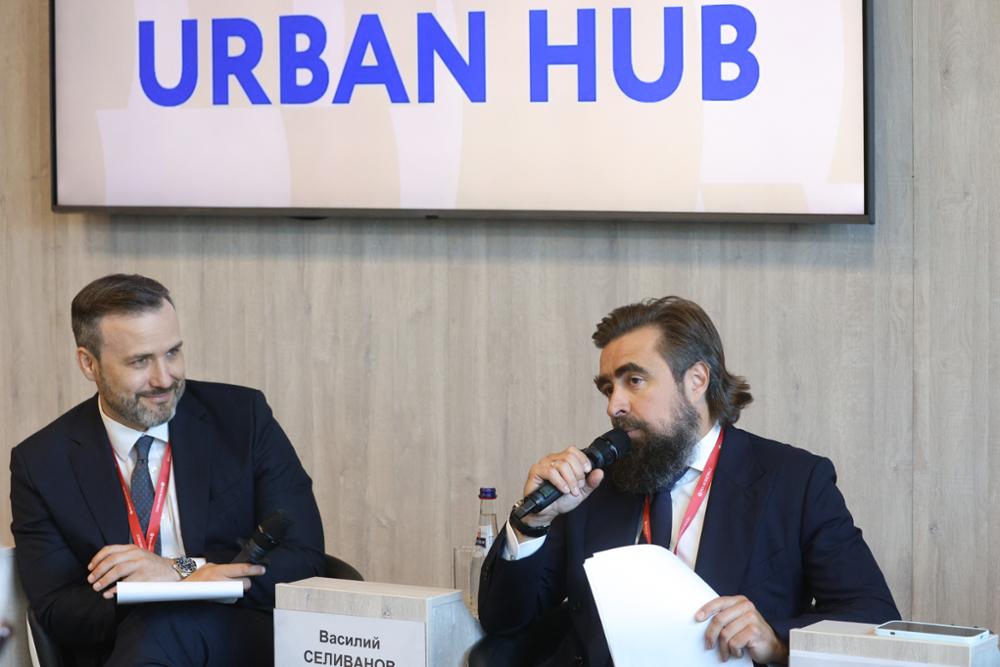
Resources and Economics of Global Oceans
KEY CONCLUSIONS
Global Ocean is a key source of economic development
“Global Ocean is an important element dialogue led by scientific, business and industrial communities. <…> The resources the Global Ocean provides are important for economic development. <…> Ocean is not just a deposit of minerals, but a source of food integral to feeding 9 billion people that are going to inhabit this planet by 2050. <…> Ocean is cables and communication infrastructure. <…> Ocean is a source of water and water resources,” Paul Holthus, Founding President, Chief Executive Officer, World Ocean Council.
“Beginning mid 60s, the number of on land discoveries steadily declines proportionally to the growing number of sea and shelf discoveries. By 2050 we will see another peak of discoveries in the oceans, in the shelf with large, giant fields,” Roman Panov, Chief Executive Officer of Rosgeologia.
“Global Ocean remains a source of renewable energy, wave energy in particular, and this is expected to make the market of almost $100 billion by 2030. <…> Global ocean is a transport corridor, so far 90% of cargo is transported by sea,” Alexey Rakhmanov, President, United Shipbuilding Corporation.
Resources consumption intensifies
“All world experts agree with the forecast that by 2050 there will be 9 billion people on this planet. In terms of key mineral resources consumption, this is the most indicative factor,” Roman Panov.
“Hydrocarbons will be in high demand, but as we speak 40% of them is used for production of new materials instead of energy,” Sergey Brilev, TV Anchor; President, Bering Bellingshausen Institute for the Americas.
“Natural resources the mankind extracts now are non-renewable. Talking about oil, gas and hydrocarbon resources, the current consumption trend is quite intense and the demand is stable. Despite the business outlook today, nobody foresees that humanity will abandon hydrocarbons any time soon. <…> Mankind consumes all key types of solid minerals at a steadily increasing rate,” Roman Panov.
The Arctic has a potential to contribute to developing various sectors of economy
“More than 50% of potential resources and reserves of oil, gas and other minerals are concentrated in the Arctic zone of the Russian Federation. <…> Today’s offshore hydrocarbons’ production cost, especially in the Arctic zone, brings us closer to developing them more intensively. <…> The production cost suggests that the average field can be developed with a profitability of under $80 per barrel, and this encourages all companies to ramp up their potential production, including in the Arctic fields, which are currently available and hitched up,” Roman Panov.
“The Arctic opens up for tourists, companies and exploration,” Reko-Antti Suojanen, Chief Executive Officer, Managing Director, Aker Arctic Technology Inc.
PROBLEMS
Shelf zone is underexplored
“Over 30% of the world’s total production of hydrocarbons is extracted from the shelf. <…> This is a specific challenge for the Russian Federation. Technologically and from the point of view of proved reserves potential, the Russian Federation is one of the key regions where the shelf is underexplored in the present context,” Roman Panov.
Environment is a constraint
“On the one hand, environment is important, on the other, it is to a certain extent a deterrent, so we should carefully consider projects that require complex technological solutions,” Roman Panov.
“The environmental issues we face must also be resolved and taken into account. Otherwise, we will not be able to sustain the environment,” Paul Holthus.
Insufficient technologies
“Technology is a constraint,” Roman Panov.
“The potential of the Northern Sea Route is underutilized. The lack of technological equipment on existing vessels is a limiting factor,” Reko-Antti Suojanen.
Regulation and legislation are behind
“Our legal and regulatory base was created back in the Soviet era, and it is not being developed for a number of reasons, including the fact that we are a country rich in resources and we can leave out the ocean,” Ivan Glumov, Vice-Chairman, Commission on the Limits of the Continental Shelf of United Nations; Member of the Board of Directors, Sovcomflot.
SOLUTIONS
New technologies and development concepts are essential
“Inevitably we are enhancing technological solutions, and this will lead to lower production costs and new large deposit discoveries, which in turn will intensify offshore projects,” Roman Panov.
“We need to improve technology, we need to modernize vessels, and we need to come up with new technological solutions for mining. These technologies are quite costly, but they can swiftly pay off,” Reko-Antti Suojanen.
“Deep sea exploration and fossil mining require certain technologies, even certain ideologies and concepts in terms of resource development,” John Parianos, Vice President, Nautilus Minerals.
Process upgrade will boost investment potential of the Arctic
“For the past twenty years, the Arctic investment potential remains high: about 1000 billion Euros, and about 50% of it belongs to the energy component. <…> We cannot change the geographic location of the region, harsh climate is there to stay, thus we need new developments and solutions for the Arctic terms,” Reko-Antti Suojanen.
Legislation should correlate with the technological development
“If an oil spill happens, certainly, the company itself is responsible for it. It must know the drill, but this should also be statutorily prescribed. Strict requirements must apply to companies to build in a single legal realm for both producers and legislators,” Paul Holthus.
More detailed information is available on the website of the Roscongress Foundation information and analytical system.








